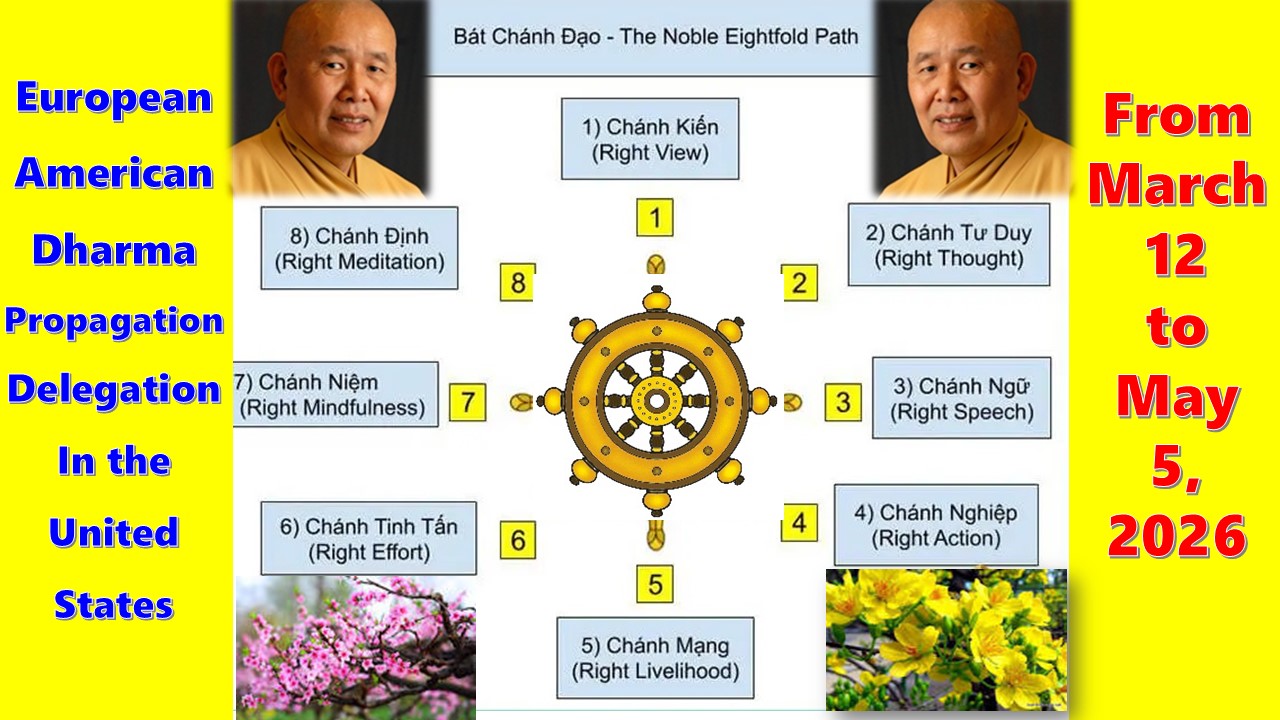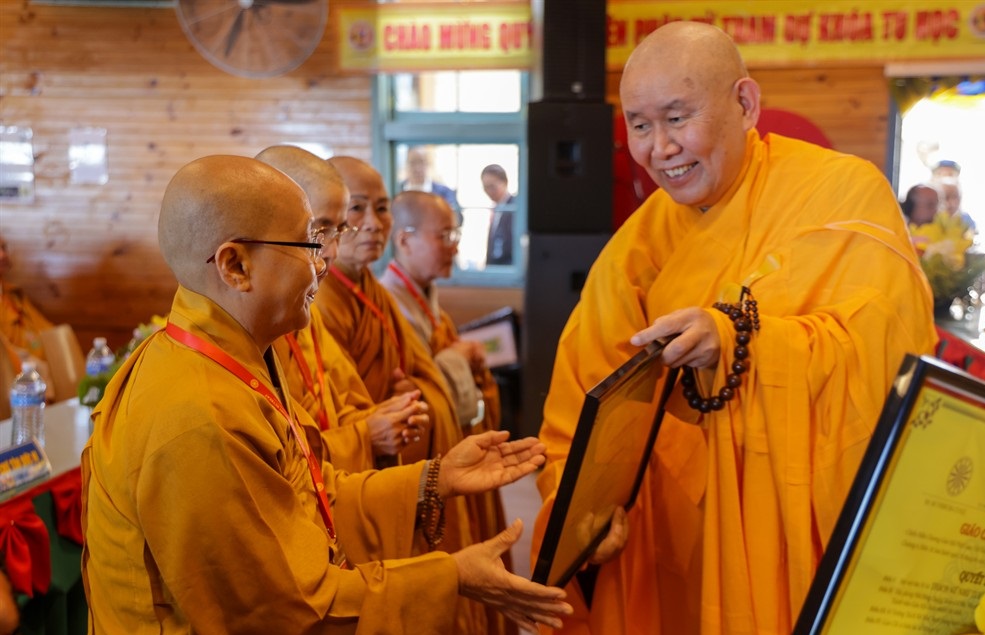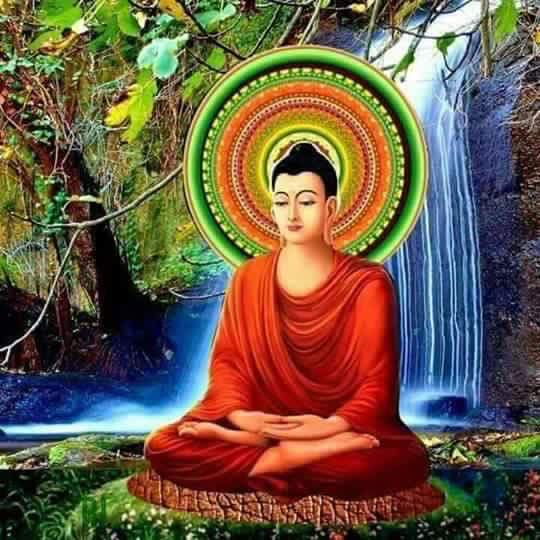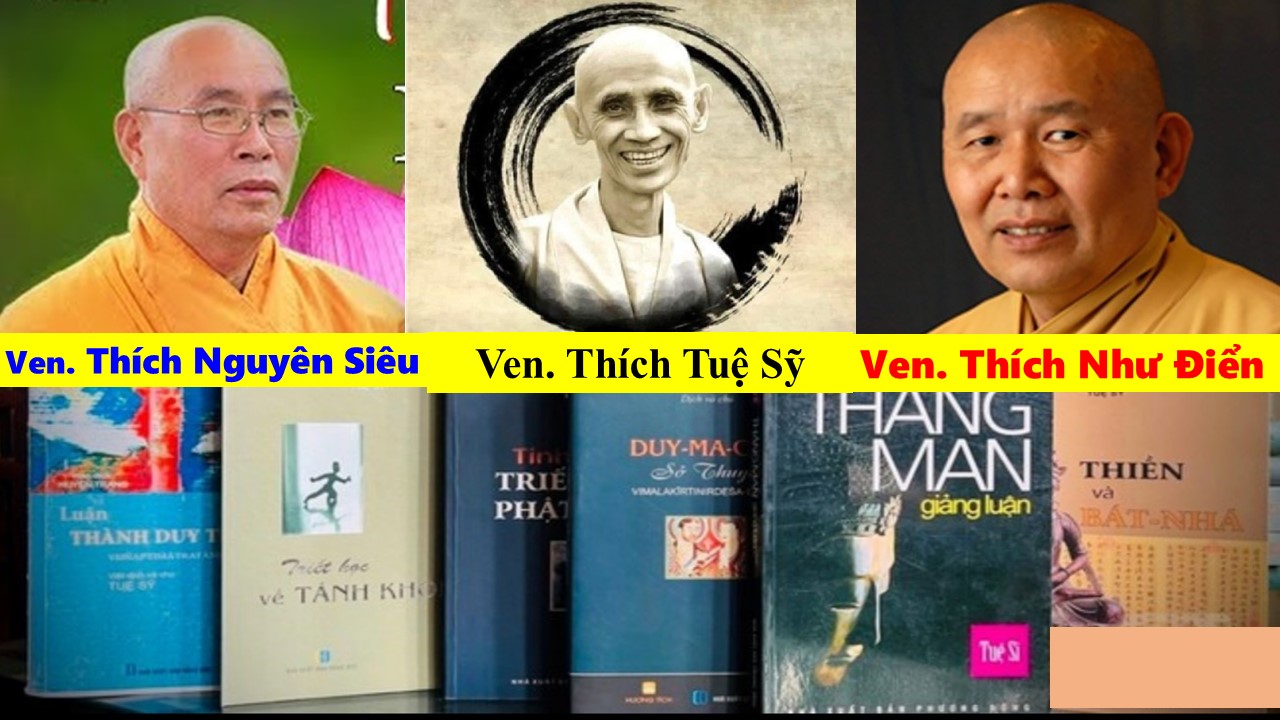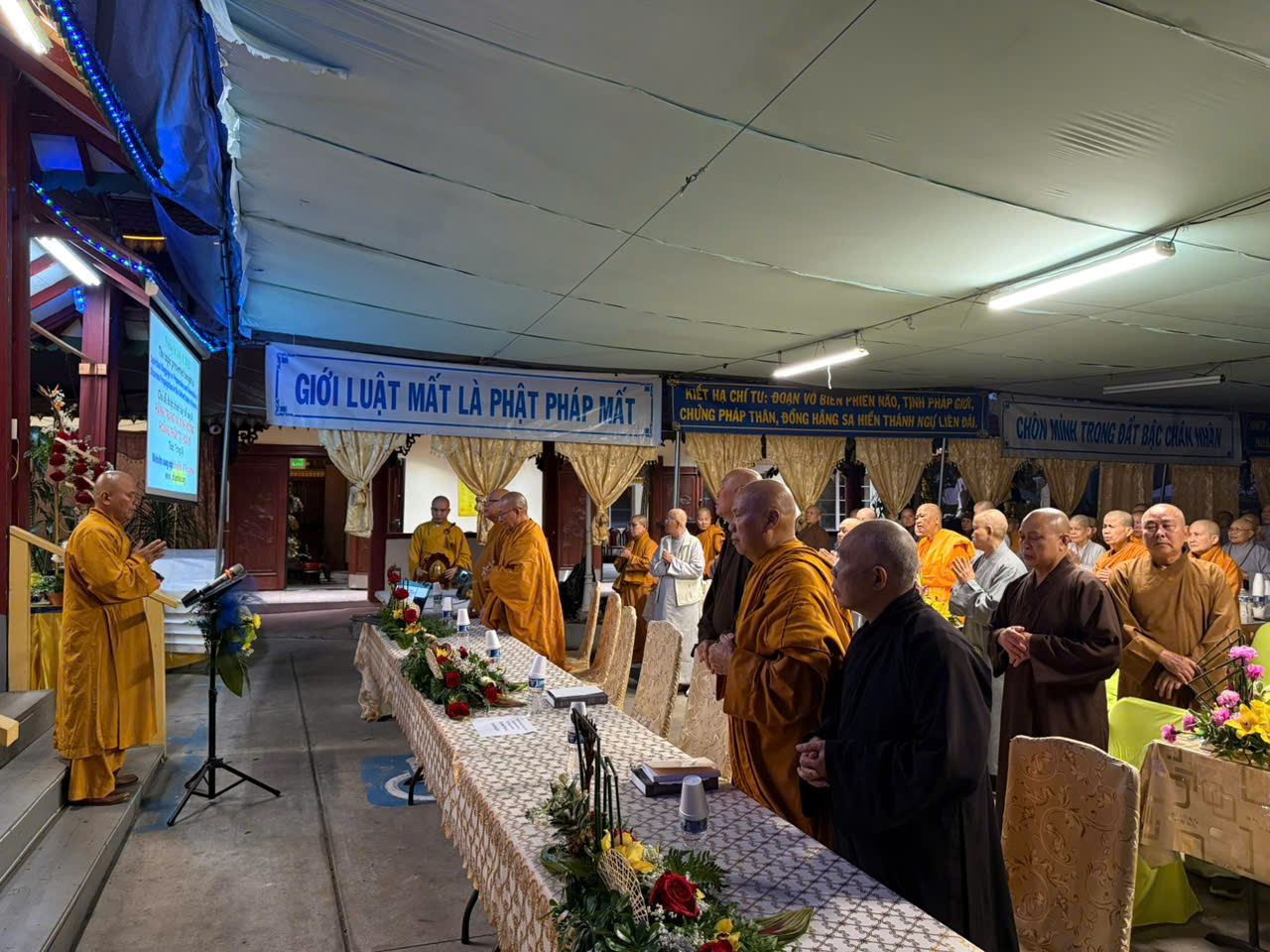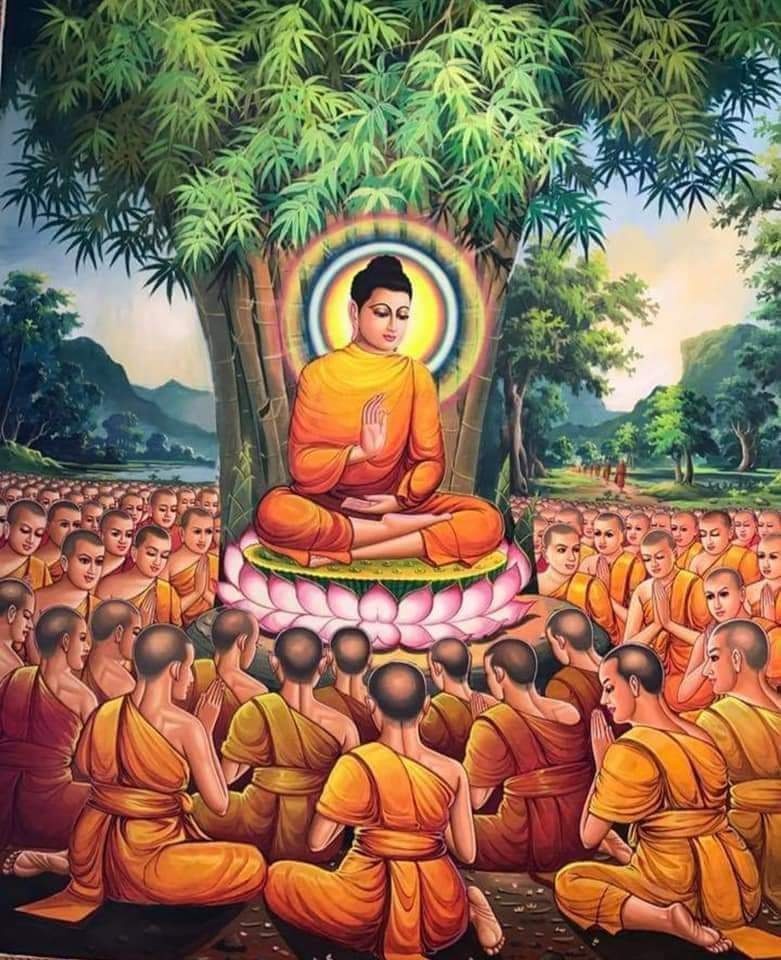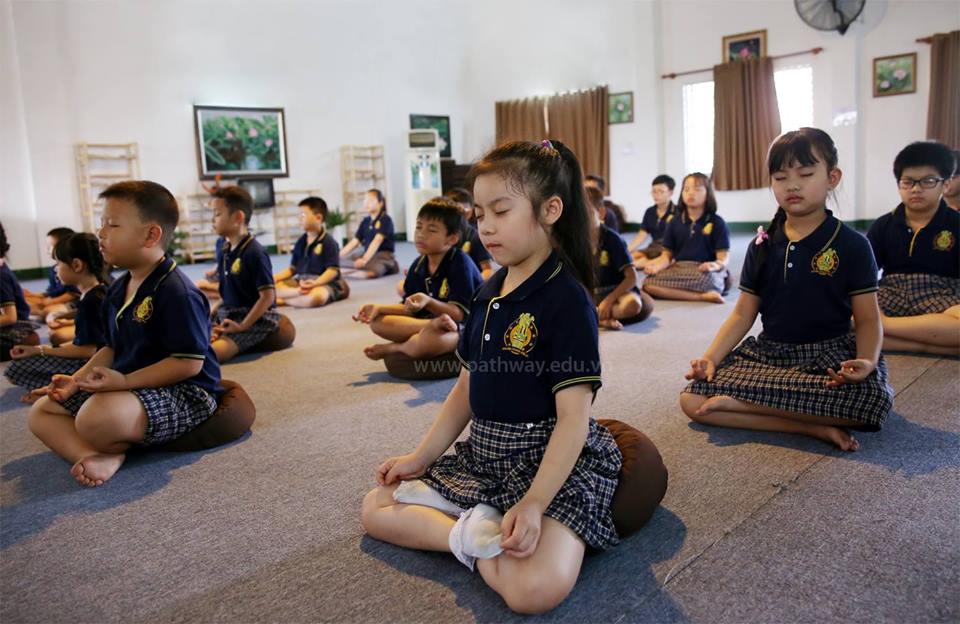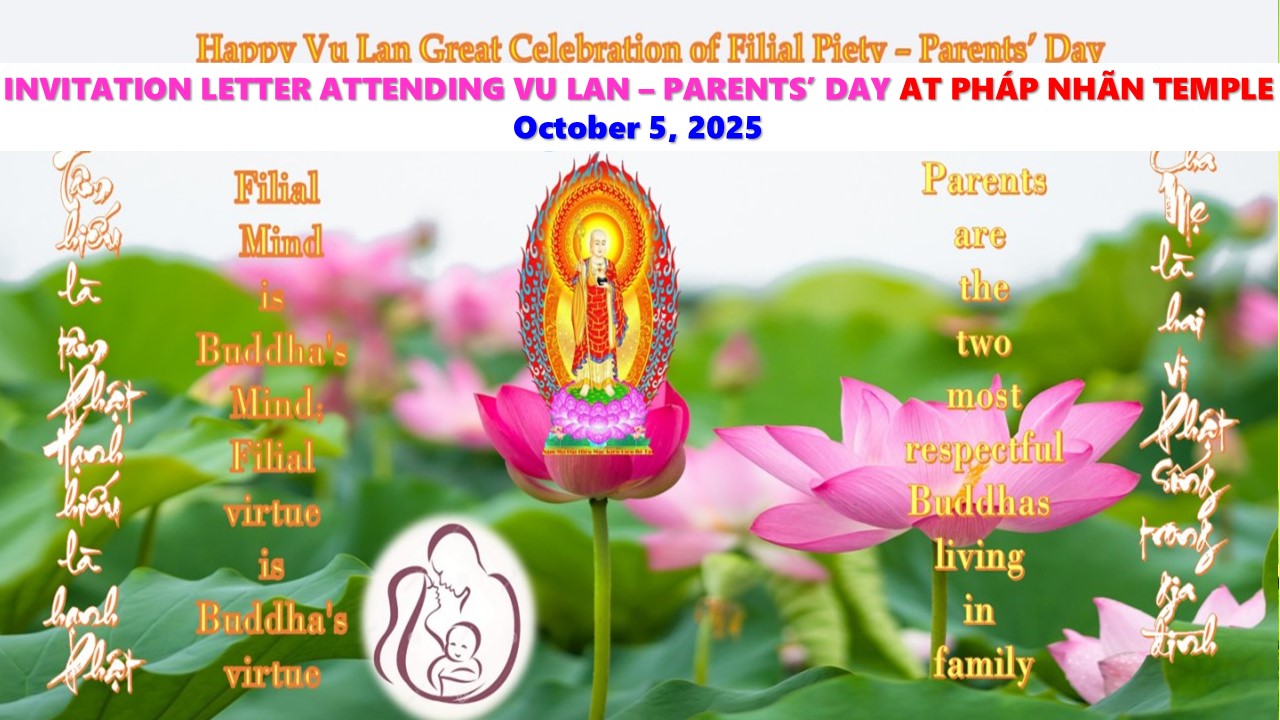Dharma Master Andrew. J. Williams
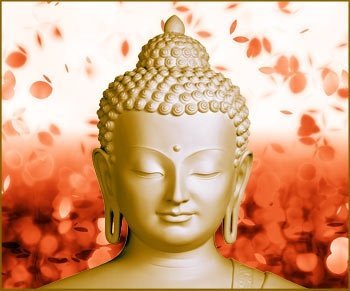
WHY I LOVE BUDDHISM
●◆● ════ ◆◇◆════ ●◆●
“A few of years ago I was asked why I love Buddhism. So here are seven answers I gave at the time, for why I love, appreciate, respect, study, practise and share the precious Buddha Dharma.
Some answers are short and sweet, while others are in more detail. Of course I could have given many more answers, and more details. However I kept it to just seven, for the benefit of easy reading.
Answer #1
The Buddha Dharma is the only path that leads to the realisation of the fruit of unsurpassed supreme enlightenment. Along the way we experience the fields of bliss caused by our fields of merit. Ultimate bliss is realised when we attain unsurpassed supreme enlightenment.
Answer #2
Practising Buddha Dharma enables us to get to know our mind, which is the source of all of our experiences.
Answer #3
Not only does Buddha Dharma answer all of the important questions in life. If we wholeheartedly practise, we ourselves will directly realise both relative and ultimate truth.
Answer #4
We have the freedom to think, act and speak. We have the freedom and potential to learn and practise. We have the freedom, potential and ability to awaken transcendent wisdom and a great heart of compassion, and attain unsurpassed supreme enlightenment.
I would like to share with you that in my youth, I was very deeply inspired to wholeheartedly practise the Buddha Dharma, for the benefit of all sentient beings, by the following well known words of the Buddha. May you too be inspired to wholeheartedly practise the Buddha Dharma, for the benefit of all sentient beings.
“Do not believe in anything (simply) because you have heard it.
Do not believe in traditions because they have been handed down for many generations.
Do not believe in anything because it is spoken and rumoured by many.
Do not believe in anything (simply) because it is found written in your religious books.
Do not believe in anything merely on the authority of your teachers and elders.
But after observation and analysis, when you find that anything agrees with reason and is conducive to the good and benefit of one and all then accept it and live up to it.”
“We are what we think.
All that we are arises with our thoughts.
With our thoughts we make the world.
Speak or act with an impure mind
And trouble will follow you
As the Wheel follows the ox that draws the cart.
We are what we think.
All that we are arises with our thoughts.
With our thoughts we make the world.
Speak or act with a pure mind
And happiness will follow you.
As your shadow, unshakeable.”
“Thus shall ye think of all this fleeting world; A star at dawn, a bubble in a stream, a flash of lightning in a summer cloud, a flickering lamp, a phantom, and a dream.”
Answer #5.
The Buddha Dharma is inclusive, not exclusive. Our aim is to benefit all sentient beings, without exception. To help all sentient beings, including ourselves, to have happiness and its causes, and to be free from suffering and it’s causes, and to attain unsurpassed supreme enlightenment as swiftly as possible.
The Buddha Dharma transcends colour, texture, flavour, language, culture, tradition and nationality. It is for everyone, everywhere and at any time.
This is especially evident in the practise of the Four Immeasurable’s (Brahma Vihara) of universal loving kindness (metta), universal compassion (karuna), empathetic joy (mudita) and equanimity or non-bias (uppekkha).
May you all be happy and free from suffering, and attain unsurpassed supreme enlightenment as swiftly as possible.
Please see more words of inspiration below from the great Indian master Shantideva’s Bodhicaryavatara (The Way of the Bodhisattva) (From the chapter on ‘Commitment’).
From verse 7 to 10:
‘…..By the virtue I have just amassed,
May all the pain of every living being
Be wholly scattered and destroyed.
For all those ailing in the world,
Until their every sickness has been healed,
May I myself become for them
The doctor, nurse and medicine itself.
Raining down a flood of food and drink,
May I dispel the ills of thirst and famine.
And in the ages marked by scarcity and want,
May I myself appear as drink and sustenance.
For sentient beings, poor and destitute,
May I become a treasure ever plentiful,
And lie before them closely in their reach,
A varied source of all that they might need…..’
From verse 18 to 22:
‘…..May I be a guard for those who are protectorless,
A guide for those who journey the road,
For those who wish to go across the water,
May I be a boat, a raft, a bridge.
May I be an isle for those who yearn for landfall,
And a lamp for those who long for light;
For those who need a resting place, a bed;
For all who need a servant, may I be their slave.
May I be the wishing jewel, the vase of plenty,
A word of power and the supreme healing;
May I be the tree of miracles,
And for every being the abundant cow.
Like the earth and the pervading elements,
Enduring as the sky itself endures,
For boundless multitudes of living beings,
May I be their ground and sustenance.
Thus for everything that lives,
As far as are the limits of the sky,
May I provide their livelihood and nourishment
Until they pass beyond the bonds of suffering…..’
Answer #6
To bring about the awakening of students of all temperaments, the Buddha taught a wonderful variety of spiritual practises. There are foundation practises for the development of loving kindness, generosity and moral integrity. Then there is a vast array of meditation practises to train the mind and open the heart. These practises include awareness of the breath and body, mindfulness of feelings and thoughts, practises of mantra and devotion, visualisation and contemplative reflection, and practises leading to refined and profoundly expanded states of consciousness.
We sentient beings are all different in one way or another. All at different stages on our spiritual journey, our path to enlightenment. Therefore, we should seek to receive instructions on the particular methods, as taught by the Buddha, that are suitable to our current individual temperaments and needs, and wholeheartedly put them into practise.
Furthermore, we all have the potential to avoid all extremes and practice the middle path, the Noble Eight-Fold Path, which consists of perfect understanding, thought, speech, action, livelihood, effort, mindfulness and concentration.
We all have the potential to practise the Dharma, to develop immeasurable love and compassion, realise perfect wisdom, and to attain unsurpassed supreme enlightenment.
Answer #7
The Buddha recommends, invites and encourages all who are interested to thoroughly investigate, analyse and test the Dharma teachings. Just as a goldsmith tests for real gold. Not to just believe in them with blind faith.
He then advises us to wholeheartedly put them into practise and to work diligently towards realising the result of the Dharma path, enlightenment.
If we do as he recommends, we will realise that his teachings are very clear and that they make perfect sense. That they are perfectly logical when tested with critical analysis and that they are in accord with modern scientific findings. In more than 2,600 years they have never been proven wrong.
Take for instance the Buddhist belief in the Law of Karma, which is a view that has been checked and analysed by many great practitioners and realised masters. Conviction in its validity is gained through logical reasoning. It should not simply be followed blindly.
Any action of body, speech, or mind, places an imprint, an ‘energy potential’ or ‘seed’ in the mind. Mental seeds are planted through your awareness of what you do, say or think. The imprints of these actions are left on the mind stream and carried on moment by moment – the present moment of mind coming from the previous moment of mind.
When the necessary supporting conditions are in place, this imprint, or latent potency, manifests as perceptions or experiences of happiness or suffering. We can liken this to a biological seed, which ripens when the contributing causes and conditions of water, soil, sun, and the like are gathered together.
May we all realise the foundation, path and result of the path, and swiftly attain unsurpassed supreme enlightenment.
Please enjoy the following quotes about the Buddha Dharma from Albert Einstein:
– ‘Science without religion is lame. Religion without science is blind.’
– ‘Buddhism requires no revision to keep it up-to-date with recent scientific finding.’
– ‘Buddhism does not need to surrender its views to science, because it embraces science as well as goes beyond science.’
– ‘The religion of the future will be a cosmic religion. It should transcend personal gods, and avoid dogma and theology. Covering both the natural and the spiritual, it should be based on a religious sense arising from the experience of all things, natural and spiritual, as a meaningful unity. Buddhism answers this description.’
– ‘If there is any religion that could cope with modern scientific needs, it would be Buddhism.’
And the following quote from historian, Arnold Toynbee:
– ‘The coming of Buddhism to the west may well prove to be the most important event of the 20th century.’
May these 7 answers be in some way helpful and beneficial to all sentient beings.
May they inspire you to study, practise and share the Buddha Dharma to the best of your ability.
May the Buddha Dharma flourish throughout infinite space.
May all sentient beings attain unsurpassed supreme enlightenment as swiftly as possible.”
●◆● ════ ◆◇◆════ ●◆●
~Dharma Master Andrew. J. Williams~


